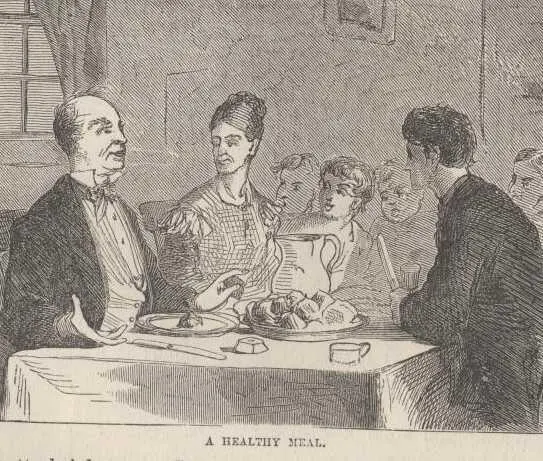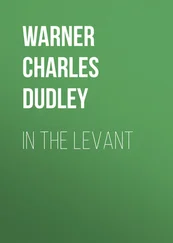Charles Warner - The Gilded Age / A tale of today
Здесь есть возможность читать онлайн «Charles Warner - The Gilded Age / A tale of today» весь текст электронной книги совершенно бесплатно (целиком полную версию без сокращений). В некоторых случаях можно слушать аудио, скачать через торрент в формате fb2 и присутствует краткое содержание. Год выпуска: 2004, Жанр: Классическая проза, на английском языке. Описание произведения, (предисловие) а так же отзывы посетителей доступны на портале библиотеки ЛибКат.
- Название:The Gilded Age / A tale of today
- Автор:
- Жанр:
- Год:2004
- ISBN:нет данных
- Рейтинг книги:3 / 5. Голосов: 1
-
Избранное:Добавить в избранное
- Отзывы:
-
Ваша оценка:
- 60
- 1
- 2
- 3
- 4
- 5
The Gilded Age / A tale of today: краткое содержание, описание и аннотация
Предлагаем к чтению аннотацию, описание, краткое содержание или предисловие (зависит от того, что написал сам автор книги «The Gilded Age / A tale of today»). Если вы не нашли необходимую информацию о книге — напишите в комментариях, мы постараемся отыскать её.
The Gilded Age / A tale of today — читать онлайн бесплатно полную книгу (весь текст) целиком
Ниже представлен текст книги, разбитый по страницам. Система сохранения места последней прочитанной страницы, позволяет с удобством читать онлайн бесплатно книгу «The Gilded Age / A tale of today», без необходимости каждый раз заново искать на чём Вы остановились. Поставьте закладку, и сможете в любой момент перейти на страницу, на которой закончили чтение.
Интервал:
Закладка:
Laura went to bed at last with a mind that had gained largely in tranquility and had lost correspondingly in morbid romantic exaltation. She was pensive, the next day, and subdued; but that was not matter for remark, for she did not differ from the mournful friends about her in that respect. Clay and Washington were the same loving and admiring brothers now that they had always been. The great secret was new to some of the younger children, but their love suffered no change under the wonderful revelation.
It is barely possible that things might have presently settled down into their old rut and the mystery have lost the bulk of its romantic sublimity in Laura's eyes, if the village gossips could have quieted down. But they could not quiet down and they did not. Day after day they called at the house, ostensibly upon visits of condolence, and they pumped away at the mother and the children without seeming to know that their questionings were in bad taste. They meant no harm they only wanted to know. Villagers always want to know.
The family fought shy of the questionings, and of course that was high testimony "if the Duchess was respectably born, why didn't they come out and prove it?—why did they, stick to that poor thin story about picking her up out of a steamboat explosion?"
Under this ceaseless persecution, Laura's morbid self-communing was renewed. At night the day's contribution of detraction, innuendo and malicious conjecture would be canvassed in her mind, and then she would drift into a course of thinking. As her thoughts ran on, the indignant tears would spring to her eyes, and she would spit out fierce little ejaculations at intervals. But finally she would grow calmer and say some comforting disdainful thing—something like this:
"But who are they?—Animals! What are their opinions to me? Let them talk—I will not stoop to be affected by it. I could hate——. Nonsense—nobody I care for or in any way respect is changed toward me, I fancy."
She may have supposed she was thinking of many individuals, but it was not so—she was thinking of only one. And her heart warmed somewhat, too, the while. One day a friend overheard a conversation like this:—and naturally came and told her all about it:
"Ned, they say you don't go there any more. How is that?"
"Well, I don't; but I tell you it's not because I don't want to and it's not because I think it is any matter who her father was or who he wasn't, either; it's only on account of this talk, talk, talk. I think she is a fine girl every way, and so would you if you knew her as well as I do; but you know how it is when a girl once gets talked about—it's all up with her—the world won't ever let her alone, after that."
The only comment Laura made upon this revelation, was:
"Then it appears that if this trouble had not occurred I could have had the happiness of Mr. Ned Thurston's serious attentions. He is well favored in person, and well liked, too, I believe, and comes of one of the first families of the village. He is prosperous, too, I hear; has been a doctor a year, now, and has had two patients—no, three, I think; yes, it was three. I attended their funerals. Well, other people have hoped and been disappointed; I am not alone in that. I wish you could stay to dinner, Maria—we are going to have sausages; and besides, I wanted to talk to you about Hawkeye and make you promise to come and see us when we are settled there."
But Maria could not stay. She had come to mingle romantic tears with Laura's over the lover's defection and had found herself dealing with a heart that could not rise to an appreciation of affliction because its interest was all centred in sausages.
But as soon as Maria was gone, Laura stamped her expressive foot and said:
"The coward! Are all books lies? I thought he would fly to the front, and be brave and noble, and stand up for me against all the world, and defy my enemies, and wither these gossips with his scorn! Poor crawling thing, let him go. I do begin to despise this world!"
She lapsed into thought. Presently she said:
"If the time ever comes, and I get a chance, Oh, I'll——"
She could not find a word that was strong enough, perhaps. By and by she said:
"Well, I am glad of it—I'm glad of it. I never cared anything for him anyway!"
And then, with small consistency, she cried a little, and patted her foot more indignantly than ever.
CHAPTER XI.
A Dinner with Col Sellers—Wonderful Effects of Raw Turnips
Two months had gone by and the Hawkins family were domiciled in Hawkeye. Washington was at work in the real estate office again, and was alternately in paradise or the other place just as it happened that Louise was gracious to him or seemingly indifferent—because indifference or preoccupation could mean nothing else than that she was thinking of some other young person. Col. Sellers had asked him several times, to dine with him, when he first returned to Hawkeye, but Washington, for no particular reason, had not accepted. No particular reason except one which he preferred to keep to himself—viz. that he could not bear to be away from Louise. It occurred to him, now, that the Colonel had not invited him lately—could he be offended? He resolved to go that very day, and give the Colonel a pleasant surprise. It was a good idea; especially as Louise had absented herself from breakfast that morning, and torn his heart; he would tear hers, now, and let her see how it felt.
The Sellers family were just starting to dinner when Washington burst upon them with his surprise. For an instant the Colonel looked nonplussed, and just a bit uncomfortable; and Mrs. Sellers looked actually distressed; but the next moment the head of the house was himself again, and exclaimed:
"All right, my boy, all right—always glad to see you—always glad to hear your voice and take you by the hand. Don't wait for special invitations—that's all nonsense among friends. Just come whenever you can, and come as often as you can—the oftener the better. You can't please us any better than that, Washington; the little woman will tell you so herself. We don't pretend to style. Plain folks, you know—plain folks. Just a plain family dinner, but such as it is, our friends are always welcome, I reckon you know that yourself, Washington. Run along, children, run along; Lafayette,—[**In those old days the average man called his children after his most revered literary and historical idols; consequently there was hardly a family, at least in the West, but had a Washington in it—and also a Lafayette, a Franklin, and six or eight sounding names from Byron, Scott, and the Bible, if the offspring held out. To visit such a family, was to find one's self confronted by a congress made up of representatives of the imperial myths and the majestic dead of all the ages. There was something thrilling about it, to a stranger, not to say awe inspiring.]—stand off the cat's tail, child, can't you see what you're doing?—Come, come, come, Roderick Dhu, it isn't nice for little boys to hang onto young gentlemen's coat tails—but never mind him, Washington, he's full of spirits and don't mean any harm. Children will be children, you know. Take the chair next to Mrs. Sellers, Washington—tut, tut, Marie Antoinette, let your brother have the fork if he wants it, you are bigger than he is."
Washington contemplated the banquet, and wondered if he were in his right mind. Was this the plain family dinner? And was it all present? It was soon apparent that this was indeed the dinner: it was all on the table: it consisted of abundance of clear, fresh water, and a basin of raw turnips—nothing more.

Интервал:
Закладка:
Похожие книги на «The Gilded Age / A tale of today»
Представляем Вашему вниманию похожие книги на «The Gilded Age / A tale of today» списком для выбора. Мы отобрали схожую по названию и смыслу литературу в надежде предоставить читателям больше вариантов отыскать новые, интересные, ещё непрочитанные произведения.
Обсуждение, отзывы о книге «The Gilded Age / A tale of today» и просто собственные мнения читателей. Оставьте ваши комментарии, напишите, что Вы думаете о произведении, его смысле или главных героях. Укажите что конкретно понравилось, а что нет, и почему Вы так считаете.












